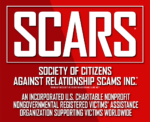SCARS™ Guest Editorial: Talking Law With Ivie Omoregie – What the Law Says About Yahoo Yahoo
A Nigerian’s View Of Scamming And The Harm It Does To Nigeria
By Ivie Omoregie, Reprinted from BellaNaija.com
A few weeks ago, the good people of Good Citizen Nigeria invited me on their platform to speak about the laws regulating Advance Fee Fraud (Yahoo Yahoo) and the negative impact it has had on Nigeria’s international image.
The topic got me thinking about Advance Fee Fraud generally. Like me, many residents of Lagos will have at some point crossed paths with a big boy (sometimes girl) who was rumoured to have either started off as or is still deeply involved in Advance Fee Fraud.
This article aims to discuss some of the laws regulating fraud in Nigeria and the effectiveness of the legal enforcement framework.
Why 419?
The term 419 actually comes from s.419 of Chapter 38 of the Criminal Code Act, which deals with obtaining property by false pretences and cheating. The section reads:
“Any person who by any false pretence, and with intent to defraud, obtains from any other person anything capable of being stolen, or induces any other person to deliver to any person anything capable of being stolen, is guilty of a felony, and is liable to imprisonment for three years.
If the thing is of the value of one thousand naira or upwards, he is liable to imprisonment for seven years.”
As we all know, over the years, the term 419 has now become a universally recognized term. Unfortunately, the entire world acknowledges that it originated from Nigeria and that it refers to fraud.
Other Laws Dealing With Fraud
Some other laws dealing with fraud include the Advance Fee Fraud and other Fraud Related Offences Act 2006 as well as the Cyber Crimes Act 2016.
The Advance Fee Fraud and other Fraud Related Offences Act 2006 again makes it an offence for any person to obtain or induce to obtain by false pretence, with the intent to defraud another, whether in Nigeria or in any other country, property or a benefit of any kind, onto him or any other person. This law further goes on to prescribe sentencing guidelines of 7-20 years imprisonment for the successful conviction under this act.
As well as making the possession of fraudulent documents illegal, the act indicts possible accomplices needed for the commission of the offence, for example:
- Owners or managers of premises who allow their premises to be used for fraud, punishable with 5-15 years imprisonment;
- Any person who invites a foreigner into Nigeria with the intention to defraud said foreigner, punishable with 7-20 years imprisonment;
- Individuals or corporate bodies who attempt to conduct financial transactions with the proceeds of unlawful activity are liable to a ₦1 million fine for the corporate body and 5-10 years imprisonment for the directors of such corporate body.
- The Cyber Crimes Act 2016 deals more with cyber crimes holistically (i.e. critical national information, child pornography, identity theft etc.). However, the act touches on instances where fraudsters send electronic messages or hack into secure databases to misappropriate sensitive data.
The act was enacted to provide a unified legal, regulatory and institutional framework for the prohibition, prevention, investigation and prosecution of cyber crimes in Nigeria.
Before this act, there had been no specific statutory or regulatory regime in the country to deal with the alarming rate at which fraudulent activities were being conducted in Nigerian cyberspace.
By virtue of this act, Nigerian courts gained jurisdiction to attend to matters concerning offences consummated outside of Nigeria, as long as the crime has a Nigerian element and is illegal in the jurisdiction where it was committed. The act also promotes International Mutual Assistance, whereby the Attorney General of the Federation of Nigeria may request for, receive assistance from, or conduct a joint investigation with any foreign agency or authority with the sole aim detecting, preventing or prosecuting offenders under the act.
The Effectiveness of Legal and Enforcement framework
Some people argue that the main reason why an increasing number of Nigerians resident in Nigeria are engaging in advance fee fraud/cybercrime is that they believe, due to a general lack of opportunities, it is a fast and easy route to raise the necessary capital to venture into the mainstream business world, thus regularizing their business affairs.
The reality of 419 in Nigeria is that there seem to be no legal ramifications. Whilst researching, I searched court records for either Supreme Court or even Court of Appeal judgments discussing advance fee fraud/cybercrime and there seem to be very few cases. This just made me wonder how many convictions there have actually been for advance fee fraud/cybercrime in the history of Nigeria, especially in light of the international perception of the country.
Generally, convictions for advance fee fraud/cybercrime have been in jurisdictions other than Nigeria. In Nigeria, what happens is that the suspects do the needful, that is, they “settle” the necessary officials. Thus, as long as one makes enough money to go around, the future is bright. I have even seen instances where these “businessmen” involve the police in their disagreements, on the understanding that the police will be entitled to 10% of the recovered proceeds of the outstanding debt.
Conclusion
I believe many Nigerians have now accepted advance fee fraud/cybercrime as a part of life and have now become de-sensitized to it.
Someone recently asked me if I would report a suspected fraudster to the police and in all honesty, I didn’t know what to say. On the flip side of things, another asked me if advance fee fraud/cybercrime was more damaging to Nigerian society than the corporate fraud being conducted by large organisations in Nigeria, and, again, I honestly didn’t know what to say. I guess there is a presumption of innocence until proven guilty.
About Ivie Omoregie
Ivie Omoregie is the Founding Consultant at Skye Advisory. Skye Advisory is a boutique business advisory firm with locations in London, England, as well as Lagos, Nigeria. Skye Advisory offers bespoke Legal, Financial and General Business advisory services to small and micro businesses.
Ivie is a duly qualified lawyer with years of cross border experience in the areas of Corporate Advisory, Energy and Projects, Finance and Litigation. Ivie is also an active member of the Nigerian Bar Association as well as an avid woman’s and children’s rights promoter.
View more details about her at www.IvieOmoregie.com. Follow her on Twitter @Ivie_Omoregie and Instagram @Ivie.Omoregie “
– – – – – – – – – –
Editor’s Note: We present the above in compliance with United States Copyright Law. It is presented for the purpose of sharing the view that in reality, regardless of the media hype, normal Nigerians do not view scamming as a favorable activity and is one that damages their country. In the last year, their EFCC has vastly increased the enforcement of these crimes and arrests have increased one hundred fold from previous years. Scamming is a societal problem, not just a law enforcement problem. For scamming to end, scammers have to be treated as pariahs in their society not heroes. But no West African country will ever arrest the tens of thousands of their people for this – yes they will arrest the thugs, but the thug gang members are less than 10% of who is scamming today – the majority of scammers today are professionals that are not being caught. Alternatives are going to have to be created for theemployments of the tens of thousands of internet trained professionals if we are to truly see scamming come to an end.

SCARS™ Team
A SCARS Division
Miami Florida U.S.A.
END
– – –
Tell us about your experiences with Romance Scammers in our Scams Discussion Forum on Facebook »
– – –
FAQ: How Do You Properly Report Scammers?
It is essential that law enforcement knows about scams & scammers, even though there is nothing (in most cases) that they can do.
Always report scams involving money lost or where you received money to:
- Local Police – ask them to take an “informational” police report – say you need it for your insurance
- Your National Police or FBI (www.IC3.gov)
- The SCARS|CDN™ Cybercriminal Data Network – Worldwide Reporting Network HERE or on www.Anyscam.com
This helps your government understand the problem, and allows law enforcement to add scammers on watch lists worldwide.
– – –
Visit our NEW Main SCARS Facebook page for much more information about scams and online crime: www.facebook.com/SCARS.News.And.Information
To learn more about SCARS visit www.AgainstScams.org
Please be sure to report all scammers HERE or on www.Anyscam.com
All original content is Copyright © 1991 – 2018 SCARS All Rights Reserved Worldwide & Webwide – RSN/Romance Scams Now & SCARS/Society of Citizens Against Relationship Scams are all trademarks of Society of Citizens Against Relationship Scams Incorporated (formerly the Society of Citizens Against Romance Scams)
Legal Notices:
All original content is Copyright © 1991 – 2018 SCARS All Rights Reserved Worldwide & Webwide. Third-party copyrights acknowledge.
SCARS, RSN, Romance Scams Now, SCARS|GLOBAL, SCARS, Society of Citizens Against Relationship Scams, Society of Citizens Against Romance Scams, SCARS|ANYSCAM, Project Anyscam, Anyscam, SCARS|GOFCH, GOFCH, SCARS|CHINA, SCARS|CDN, SCARS Cybercriminal Data Network, Cobalt Alert, Scam Victims Support Group, are all trademarks of Society of Citizens Against Relationship Scams Incorporated.
Contact the law firm for the Society of Citizens Against Relationship Scams Incorporated by email at legal@AgainstScams.org






Please Leave A Comment - Tell Us What You Think About This!